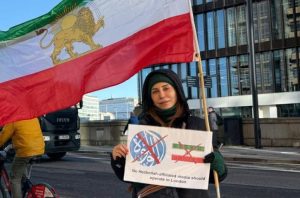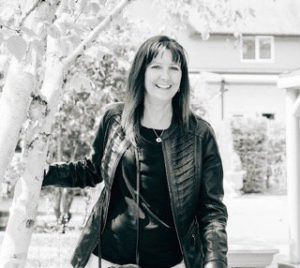Helen Zille’s mayoral bid divides DA

Democratic Alliance (DA) federal council chair Helen Zille’s potential return to front-line politics as the party’s Johannesburg mayoral candidate has reignited political tensions in the city, drawing sharp rebukes from both the ANC and ActionSA ahead of the 2026 local government elections.
It has also ruffled feathers in her own party, with some DA Gauteng members expressing concern about what they describe as a centralisation of power and a lack of renewal in the party. The DA is divided over whether the former Cape Town mayor and Western Cape premier represents stability or stagnation.
Zille confirmed last week that she has been approached to apply for the position and is considering the offer seriously. “I’ve been asked to throw my name in the hat,” she told Reuters, adding that she would consult her family before making a final decision.
Zille’s potential candidacy comes as the DA prepares to finalise its shortlist for the 2026 local government elections.
Both the ANC and ActionSA have accused the DA of clinging to outdated leadership structures and sidelining younger, black leaders in favour of political veterans.
ActionSA leader Herman Mashaba, who served as Johannesburg mayor from 2016 to 2019 under a DA-led coalition before resigning, did not mince words in his critique of his former party’s internal dynamics.
“They do not believe in black excellence,” Mashaba commented this week, saying the same DA that had refused to back its former Johannesburg mayor, Mpho Phalatse, when she faced opposition was now turning to Zille.
“If Zille becomes mayor, the people of Soweto and Alexandra can forget about ever receiving quality services,” he said.
The ANC’s Johannesburg regional spokesperson, Sasa Manganye, said Zille’s possible candidacy further confirmed the DA’s failure to nurture leadership capable of governing the city.
“The DA has had multiple chances to prove itself since 2016, and each time it has failed Johannesburg residents. Coalition governments under their watch have been defined by infighting, leadership instability and poor service delivery,” he said.
He added that Zille’s return would signal a continuation of that dysfunction.
Joburg remains politically fractured. Since the 2021 local government elections, the city has seen a succession of mayors as fragile coalitions struggled to hold.
The ANC currently leads the metro, with Dada Morero elected as the new mayor last August, succeeding Kabelo Gwamanda, who had resigned in the eighth change in city’s top job since December 2019. This is Morero’s second bite as mayor, having served in the post for just 25 days in 2022 before the Johannesburg high court ruled that his election was unlawful.
Morero’s second tenure, while comparatively stable, has faced criticism over delayed infrastructure maintenance and poor service delivery in informal settlements.
Speaking at a press briefing in Tshwane House on Monday, Morero suggested that Zille’s potential inclusion on the list for Johannesburg mayor could indicate the DA’s acknowledgment that the party in the region is not up to the task and that it might also have been prompted by a recognition of the efforts of the ANC and its coalition partners to address issues in the city.
“We have assembled a team of Joburgers, many of whom have served as city managers in Johannesburg and Tshwane, to help us turn around Johannesburg. We have extended the invitation to some among their ranks, and perhaps [the DA is] realising that something is being done to turn around Johannesburg. We are making progress, and we are beginning to see results,” he said.
Tshwane mayor Nasiphi Moya said it was interesting that the DA was considering Zille, who lives in Western Cape, as a mayoral candidate in Johannesburg.
Zille, widely credited with turning around Cape Town’s governance during her tenure from 2006 to 2009, is seen by some in the DA as a steady hand capable of restoring stability and strategic focus to the Johannesburg administration. Her supporters argue that her national experience and administrative acumen make her an ideal candidate to spearhead the DA’s campaign in Gauteng. But concerns in the DA’s Gauteng structures point to growing dissatisfaction with the federal leadership’s influence on local decisions.
A senior DA member in the province, speaking on condition of anonymity, described Zille’s potential candidacy as “disempowering” to local leaders.
“We talk about renewal, we talk about grooming the next generation, but whenever there is a high-stakes race, we fall back on people who already had their turn,” the source said. “The optics of parachuting a Cape-based senior figure into a Gauteng race will cost us in the long run.”
DA national spokesperson Karabo Khakhau downplayed claims of internal division, saying the party’s candidate selection process remains open and competitive.
“All members who meet the eligibility requirements are free to apply. The selection panel will consider each candidate on merit,” she said.
The political implications of Zille’s entry into the race are already being felt in the broader coalition space. The DA, which garnered about 26% of the vote in Johannesburg in 2021, remains dependent on coalition partners to govern. Its coalition with ActionSA, the Inkatha Freedom Party, Freedom Front Plus and other smaller parties collapsed following disputes over candidate nominations and policy direction.
Political analyst Lukhona Mnguni said Zille’s possible candidacy could polarise potential coalition partners and fracture the DA’s electoral appeal in townships and urban peripheries.
“Zille remains a powerful figure in South African politics, but her return to the executive office in Johannesburg would be controversial,” Mnguni said.
“There’s a perception that she is not sufficiently in touch with the socio-economic realities of black urban voters, and that could limit the DA’s growth beyond its traditional support base.”
Despite this, others argue that Zille would bring credibility and competence to a city mired in endless governance crises which have seen it battle with infrastructure decay, energy disruptions and budget overruns. Some voters may prioritise experience over identity, they said.
The final list of DA mayoral candidates is expected to be announced by the end of June. While Zille’s formal entry remains pending, her acknowledgment of the approach has already shifted the terrain. Should she enter and be selected, the DA will face the dual task of presenting her as both a proven leader and a legitimate choice for Johannesburg’s diverse electorate.
The Mail & Guardian had not received comment from Zille by the time of publishing.
Meanwhile, ANC officials say they are preparing to defend the mayoral chain, with Morero already positioning himself as a hands-on leader with a new focus on community safety, infrastructure repair and energy resilience.
In recent weeks, the city deployed new metro policing units and launched a “bomb squad” to investigate sabotage of substations and water infrastructure.
The contest for Johannesburg may prove to be one of the most fiercely fought battles in the 2026 municipal elections.



